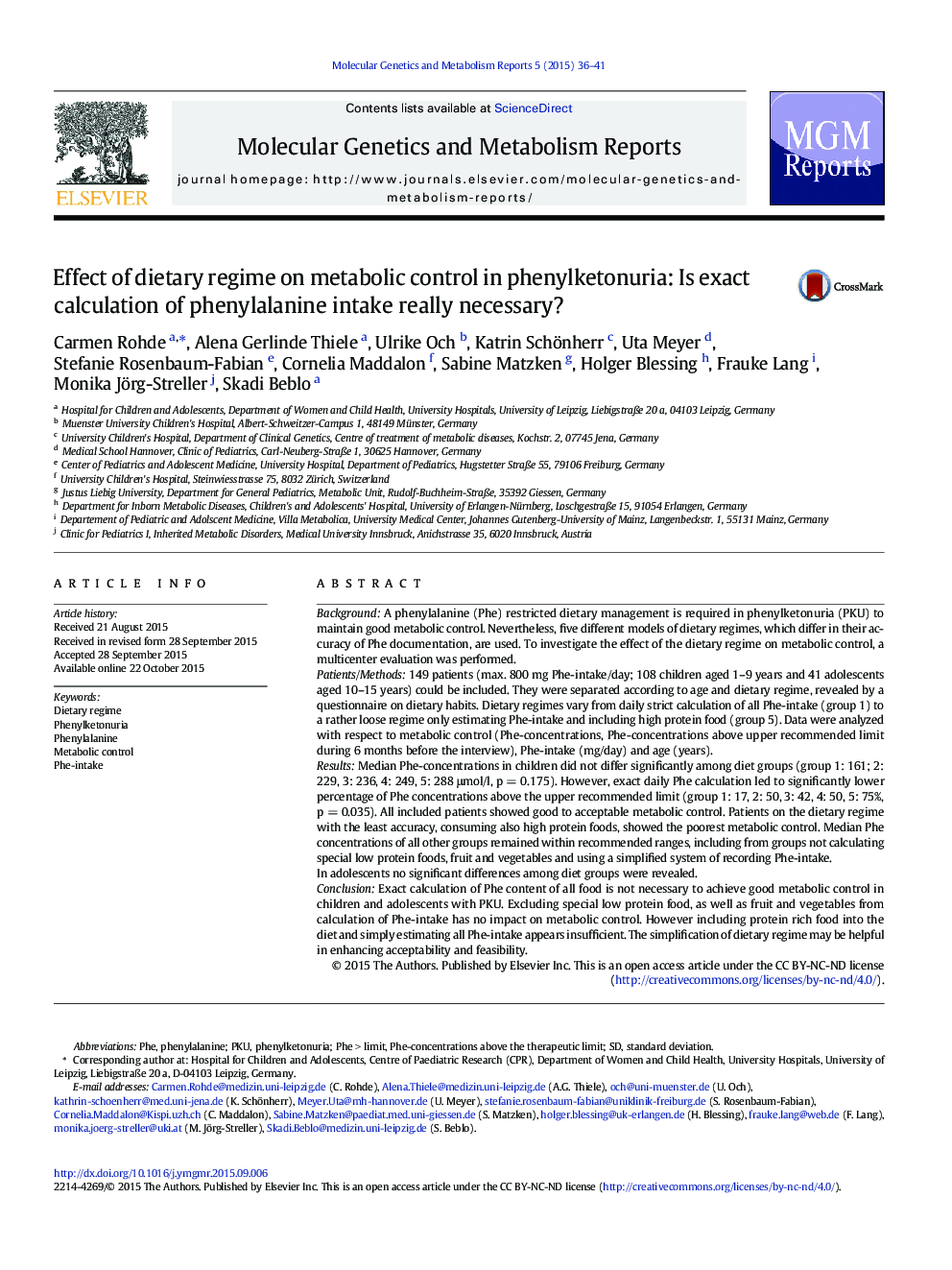| Article ID | Journal | Published Year | Pages | File Type |
|---|---|---|---|---|
| 2058987 | Molecular Genetics and Metabolism Reports | 2015 | 6 Pages |
BackgroundA phenylalanine (Phe) restricted dietary management is required in phenylketonuria (PKU) to maintain good metabolic control. Nevertheless, five different models of dietary regimes, which differ in their accuracy of Phe documentation, are used. To investigate the effect of the dietary regime on metabolic control, a multicenter evaluation was performed.Patients/Methods149 patients (max. 800 mg Phe-intake/day; 108 children aged 1–9 years and 41 adolescents aged 10–15 years) could be included. They were separated according to age and dietary regime, revealed by a questionnaire on dietary habits. Dietary regimes vary from daily strict calculation of all Phe-intake (group 1) to a rather loose regime only estimating Phe-intake and including high protein food (group 5). Data were analyzed with respect to metabolic control (Phe-concentrations, Phe-concentrations above upper recommended limit during 6 months before the interview), Phe-intake (mg/day) and age (years).ResultsMedian Phe-concentrations in children did not differ significantly among diet groups (group 1: 161; 2: 229, 3: 236, 4: 249, 5: 288 μmol/l, p = 0.175). However, exact daily Phe calculation led to significantly lower percentage of Phe concentrations above the upper recommended limit (group 1: 17, 2: 50, 3: 42, 4: 50, 5: 75%, p = 0.035). All included patients showed good to acceptable metabolic control. Patients on the dietary regime with the least accuracy, consuming also high protein foods, showed the poorest metabolic control. Median Phe concentrations of all other groups remained within recommended ranges, including from groups not calculating special low protein foods, fruit and vegetables and using a simplified system of recording Phe-intake.In adolescents no significant differences among diet groups were revealed.ConclusionExact calculation of Phe content of all food is not necessary to achieve good metabolic control in children and adolescents with PKU. Excluding special low protein food, as well as fruit and vegetables from calculation of Phe-intake has no impact on metabolic control. However including protein rich food into the diet and simply estimating all Phe-intake appears insufficient. The simplification of dietary regime may be helpful in enhancing acceptability and feasibility.
